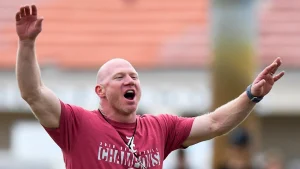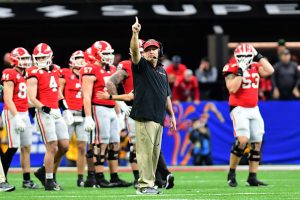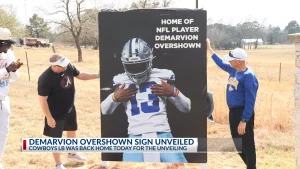
Nate Oats, the head coach of Alabama men’s basketball, has turned the program into one of the most dynamic in the country since his arrival in 2019. His coaching philosophy, centered around a fast-paced, high-scoring offense and a stifling defense, has earned Alabama recognition as a contender in the SEC and nationally. One of the challenges a coach like Oats faces, however, is how to handle bye weeks—periods where the team does not have any scheduled games. These weeks present both opportunities and obstacles, requiring a fine balance between rest, preparation, and development.
While every coach has their own approach to managing a bye week, Nate Oats has developed a strategy that not only keeps his players in peak physical and mental condition but also strengthens the bond within the team and fine-tunes their tactical execution. Below is an exploration of how Oats approaches Alabama Basketball’s bye week, focusing on the various aspects of preparation, development, and team-building during this time.
1. A Time for Reflection and Recovery
One of the first priorities for any team during a bye week is rest and recovery. College basketball is grueling, with the physical and mental demands taking a toll on athletes over the course of a long season. For Oats, giving his players a chance to recharge is key. He typically starts the bye week by giving his players a day or two off from basketball altogether. This break allows players to rest their bodies, particularly after a tough stretch of games, while also mentally distancing themselves from the intensity of the competition.
In this period, players can focus on recovering from minor injuries, recharging their energy levels, and spending time with family and friends. This rest period is critical because it prevents burnout, ensuring that players are physically and mentally sharp when the games resume. Oats understands that his players are students as well, so he may also encourage them to catch up on schoolwork, allowing them to return to the court feeling refreshed and ready to focus.
2. Skill Development and Individual Focus
Once the initial recovery period is over, Oats shifts the focus to skill development. While there may be fewer formal practices, the coaching staff uses the time to work with individual players, especially those who may need to fine-tune certain aspects of their game. This could include improving shooting mechanics, working on ball-handling, or getting players into the weight room to enhance their strength and conditioning.
For Oats, individual attention during the bye week can go a long way in helping players improve specific weaknesses or refine strengths. He knows that Alabama’s success hinges on the continued development of his players, especially with key figures like Brandon Miller and Noah Clowney, who are expected to carry the team. By focusing on personalized development, Oats ensures that each player is ready to contribute at a high level when the competition resumes.
Additionally, Oats often places a strong emphasis on basketball IQ. The bye week offers a chance to watch game film, study opponents, and discuss strategy. This deep dive into film study is designed not just to prepare for the next opponent but also to enhance each player’s understanding of the system Oats has installed. Understanding the why behind each play, defensive rotation, and offensive set can make players more effective, especially in high-pressure moments.
3. Refining Team Concepts and Execution
While individual development is important, a major focus for Oats during a bye week is refining the team’s overall concepts. Alabama’s basketball system is predicated on fast transitions, three-point shooting, and aggressive defense. The bye week provides an opportunity to revisit these principles and ensure that the players are executing them at a high level. The team can spend extra time focusing on their offense, both in the half-court and transition, and on defense, especially in areas like closing out on shooters, rotating quickly, and defending the rim.
Oats is known for his high-octane, pace-and-space style of play, which relies heavily on speed and ball movement. The bye week allows him to work on fine-tuning these aspects—such as developing better spacing or making quicker decisions when moving the ball. The aim is to ensure that players have a better understanding of how to execute within the flow of the offense and how to counteract opposing defenses.
In terms of defense, Oats has developed a reputation for his team’s aggressive, switch-heavy defensive schemes. During the bye week, Alabama can focus on areas like defensive rebounding, minimizing turnovers, and improving help defense. These are critical aspects that can elevate Alabama from being a good team to a great one.
4. Strategic Preparation for the Next Opponent
While some coaches view the bye week as a chance to look beyond the next opponent and focus on the broader scope of the season, Oats is meticulous in preparing for the next challenge. He knows that every game is an opportunity to improve, and even though the team may have more time between games, the next opponent is always at the forefront of his mind.
Oats and his staff spend significant time analyzing the next opponent’s strengths and weaknesses, breaking down film, and planning how to exploit matchups. This prep is critical, especially for an Alabama team that plays a unique style of basketball. Oats is known for his ability to adjust his tactics based on the opponent’s personnel, and this week gives him extra time to make those adjustments. The team will spend several sessions going over the opponent’s tendencies, identifying key players, and crafting game plans for specific scenarios.
For example, if the next team is known for a slow, methodical offense, Oats might work with his players on pushing the pace, looking for quick transitions, and wearing down the opposing defense. If the team is facing a particularly strong defensive squad, Oats will look at ways to break through their defensive schemes, such as improving pick-and-roll execution or finding weak spots in the defense.
5. Mental Focus and Team Cohesion
Mental preparation is another crucial component of a successful bye week under Oats. A big part of this is maintaining team morale and mental sharpness. The staff will engage players in activities designed to keep them mentally focused while building camaraderie and trust. Team-building exercises, leadership development, and even light-hearted bonding sessions can make a big difference in ensuring that the team remains united and motivated.
Oats is keenly aware of the importance of team chemistry, and he understands that a unified locker room is essential to long-term success. This is especially true in a high-pressure sport like basketball, where success often depends on the ability to rely on teammates. During a bye week, Oats might organize team dinners, group outings, or even off-the-court activities to keep the players connected and ensure that the focus stays on the collective goal of winning.
Oats also takes the time to work with his staff to ensure they are all aligned in terms of their vision for the team. Everyone—from the assistants to the support staff—is involved in this process of reflection, improvement, and preparation. Coaches use the week to learn from past games, study the performance of individual players, and evaluate what changes or adjustments need to be made for the team to be even more successful going forward.
6. Long-Term Vision and Sustained Success
While the immediate focus during a bye week is often on the next few games, Oats uses this time to also think about the long-term success of Alabama Basketball. By evaluating trends, patterns, and potential areas for improvement, he’s positioning the team to have a sustained period of excellence beyond just the current season. The bye week is a good time for coaches to reinforce their broader philosophies—such as developing younger players, building leadership within the team, and promoting accountability both on and off the court.
At the same time, Oats continues to build the culture at Alabama. His fast-paced, defensive-minded system has created a winning environment, and by using the bye week to enhance that culture, Oats ensures that it remains sustainable. He wants to leave a lasting legacy, where Alabama continues to compete at the highest levels year after year, even after the current group of players moves on to professional careers or graduation.





